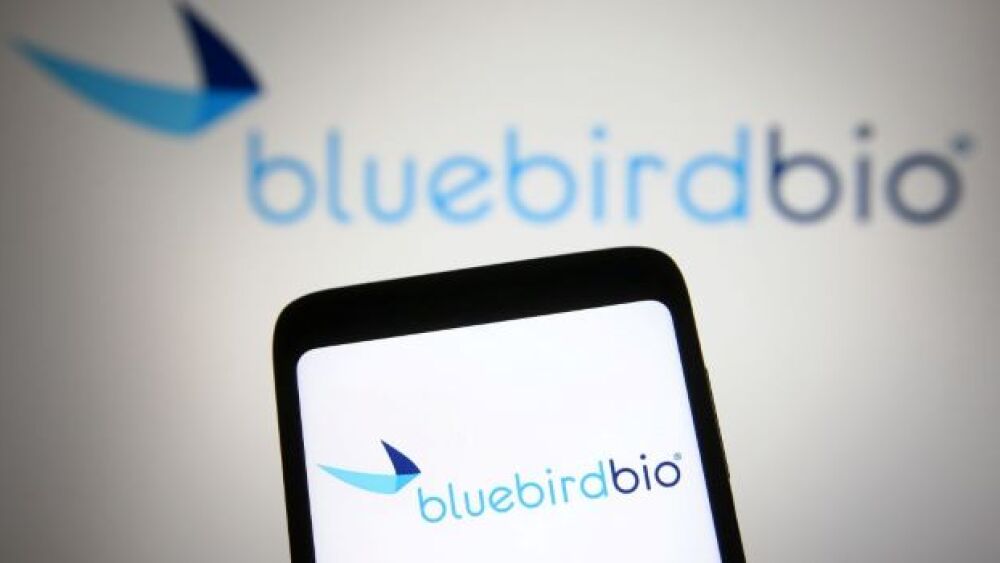To help support the launch of Lyfgenia, bluebird bio on Monday entered into a five-year term loan deal with Hercules Capital that will extend the biotech’s cash runway through the first quarter of 2026.
Pictured: bluebird bio logo on wall/device, courtesy of Pavlo Gonchar/SOPA Images/LightRocket via Getty Images
Bluebird bio on Monday announced that it has signed a five-year, term loan deal with Hercules Capital, providing the biotech with up to $175 million in debt financing to support its launch activities for sickle cell disease gene therapy Lyfgenia.
Under the terms of the loan agreement, Hercules will make an initial $75 million tranche upon closing the transaction. Bluebird will then be able to withdraw two more tranches, each worth $25 million, contingent on specific commercial milestones.
Assuming bluebird meets its milestones, the company will be eligible to receive an aggregate of $125 million, extending the biotech’s cash runway through the first quarter of 2026. According to its most recent financial report—covering the third quarter of 2023—bluebird had $227 million in cash, cash equivalents, marketable securities and restricted cash, which would last the company through the second quarter of this year.
Hercules will also have the “sole discretion” of providing a fourth payment tranche worth $50 million, bumping the cumulative loan value up to $175 million. During the first three years of the loan deal, bluebird will only be on the hook for interest on any amount borrowed.
J. Wood Capital Advisors served as the sole financial advisor for bluebird, while Latham & Watkin LLP was its legal counsel. DLA Piper was legal counsel to Hercules.
Bluebird CFO Chris Krawtschuk in a statement said that the debt financing agreement with Hercules “underscores the value bluebird offers as a standalone gene therapy leader,” while also extending the biotech’s runway and “bolstering our ability to bring transformative treatments to patients and their families.”
Bluebird’s sickle cell disease gene therapy Lyfgenia (lovotibeglogene autotemcel) won the FDA’s approval in December 2023, but it did not generate the investor enthusiasm that the company might have been hoping for. In the hours following the regulatory victory, bluebird’s shares started tanking and the biotech closed the day down nearly 35%.
There are several explanations for the dip—including Lyfgenia’s boxed warning and the lack of a priority voucher—but perhaps the strongest factor is Lyfgenia’s price.
Soon after the FDA’s approval, bluebird announced that the gene therapy would have a wholesale acquisition price of $3.1 million, making it nearly $1 million more expensive than Vertex Pharmaceuticals and CRISPR Therapeutics’ Casgevy (exagamglogene autotemcel), which was approved on the same day as Lyfgenia and costs $2.2 million.
Bluebird has since been able to secure two deals to help broaden the coverage for Lyfgenia and has also accessed two funding opportunities to potentially add $250 million to its cash position.
Tristan Manalac is an independent science writer based in Metro Manila, Philippines. Reach out to him on LinkedIn or email him at tristan@tristanmanalac.com or tristan.manalac@biospace.com.






